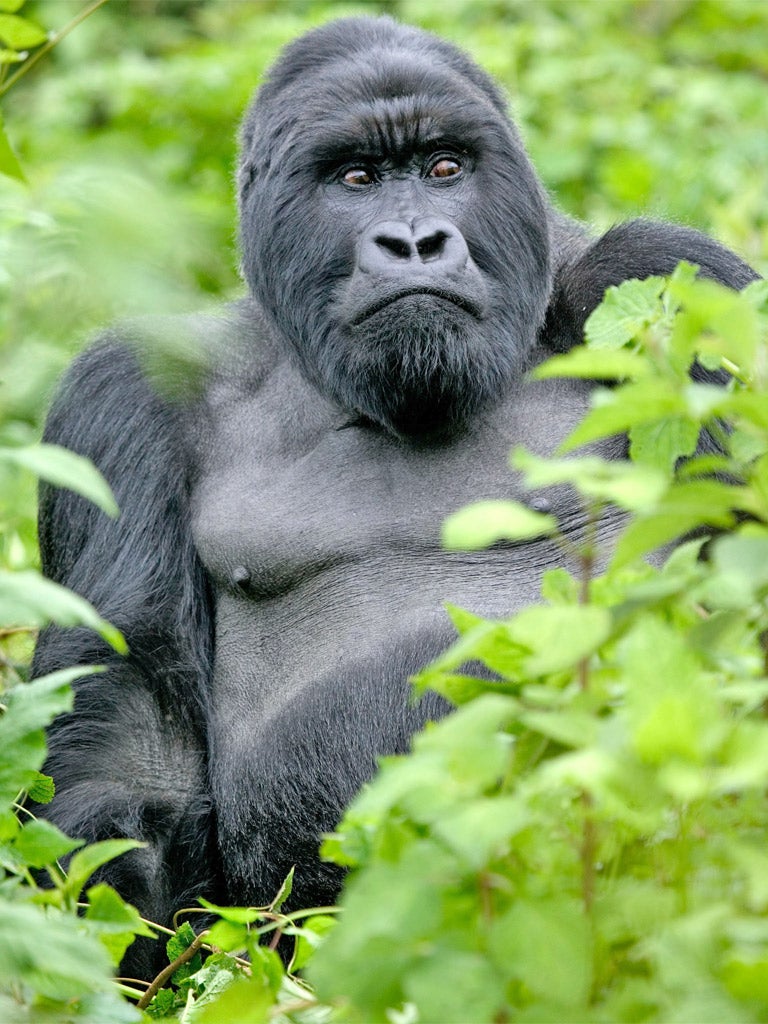Nature Studies by Michael McCarthy: These brave park rangers make me seem like a traffic warden
I was grumbled at and occasionally roundly abused. But I never got shot

When I was a young man, I spent part of each summer working as a volunteer warden on a nature reserve in Anglesey. Before I first went there, at 18, I fondly pictured myself as a sort of junior David Attenborough figure, watching wonderful wildlife at close quarters, and I was somewhat abashed to find that my real role was closer to being a traffic warden.
The reserve centred on the largest area of sand dunes in western Britain, which did indeed harbour remarkable fauna and flora – short-eared owls, polecats, round-leaved wintergreen, one of Britain's scarcer and more charming wild flowers – but my job involved very little looking at them. Its essence was containing public pressure.
For example, the dunes fronted a long sandy beach, very attractive to families, and when the wind blew up a mini-sandstorm, people would retreat into the dunes for their picnics. Yet birds such as oystercatchers were breeding right there and part of my job was to smile charmingly and say to windblown families, "Er, would you mind terribly moving back on to the beach? As otherwise the oystercatchers will desert their nest." The people nearly always did, although I was grumbled at and occasionally roundly abused. But I never got shot.
Had I been doing this job in the Virunga National Park in the Democratic Republic of the Congo, I would very probably be dead. In the past two decades, 140 park rangers have been killed trying to protect the park and its breathtaking biodiversity, most notably its majestic mountain gorillas, among the world's rarest animals. The park's 200 gorillas represent about a quarter of the entire global population which is spread along the Virunga volcanoes range, extending into Rwanda and Uganda.
The dead rangers have been victims of the worst of all of Africa's wars, the fighting in the eastern part of the DRC (mainly the province of Kivu), which followed the Rwandan genocide of 1994. The ethnic conflict between Hutus and Tutsis spilled over the border and sparked a violent struggle between warring Congo factions which has been called "Africa's World War" and may have claimed five million lives; and it is continuing.
After three years of relative peace in the area, a new round of fighting broke out in April when a section of the Congolese army mutinied and set up as a rebel force calling itself M23. In recent weeks, the United Nations has accused neighbouring Rwanda and its president, Paul Kagame, hitherto one of the West's darlings, of arming the rebels, and Britain and the US have now begun to suspend Rwandan aid payments.
In the meantime, the rebels have taken over a swathe of north Kivu, forcing hundreds of thousands of people from their homes; and the Virunga National Park is right in the heart of their clashes with the Congolese army. But in recent days the park's rangers have secured an agreement with the rebels to let them check on the status of the seven gorilla groups in the park, which had not been seen since the fighting broke out. They have found four of them and confirmed that they are in good condition.
"It was truly amazing to see the gorillas again after so long and so much fighting," said one ranger, Innocent Mburanumwe. "They circled us and several reached out to touch and smell us. They had not seen us for a very long time and seemed calm and curious."
And I thought I was making a contribution with my sand dune picnickers. I am lost in admiration for these guys. You can follow what they are doing on the Virunga Park website, gorilllacd.org.
Magnificence and misery are all too common bedfellows
The mountain gorillas and the Congo war together exemplify one of Africa's perennial paradoxes: the world's most magnificent wildlife side by side with the world's deepest human misery.
Five years ago, I went to see the gorillas (I saw them on the Rwandan side of the Virungas) and certainly the experience was unforgettable.
In the heart of the forest, I sat 20ft from the silverback, the dominant male of the group, who was the size of a car, and had two babies playing on his back: one of them ran up a tree and jumped on to me just for the hell of it.
But at the same time, I also went over the DRC border into Kivu and encountered distress I will remember just as long.
I met a woman called Germaine Buhendwa who was trying to look after women in a village who had been raped the week before by one of the warring bands of brigands infesting the forest. I asked her how many women had been raped and she said: "All of them."
The situation is still terrible, as a recent Oxfam press release spelled out (tinyurl.com/bqsm7qh). Africa's tragedy sometimes seems to be endless.
Join our commenting forum
Join thought-provoking conversations, follow other Independent readers and see their replies
Comments
Bookmark popover
Removed from bookmarks